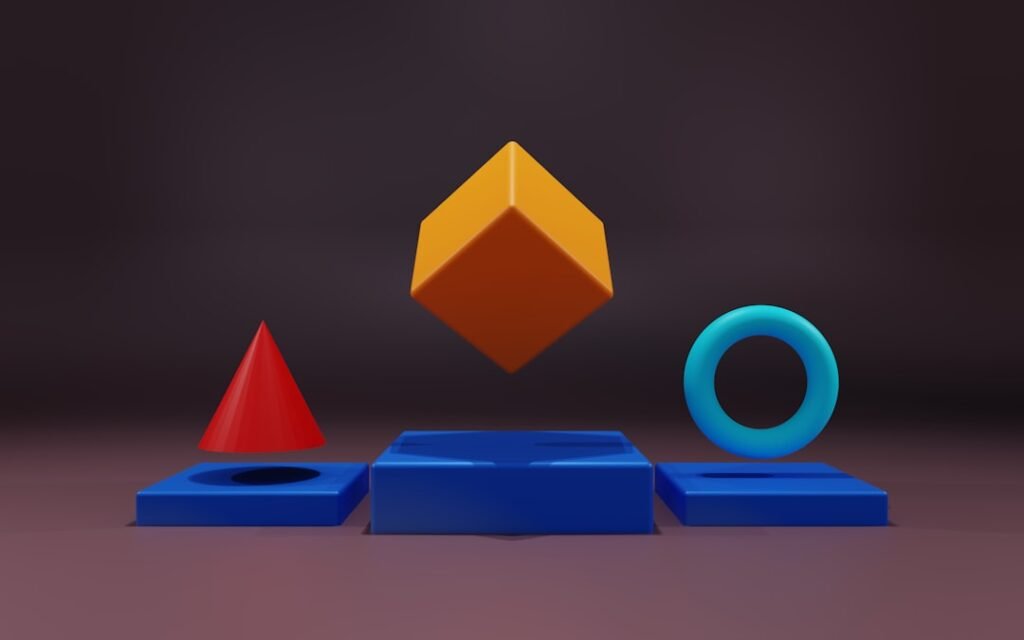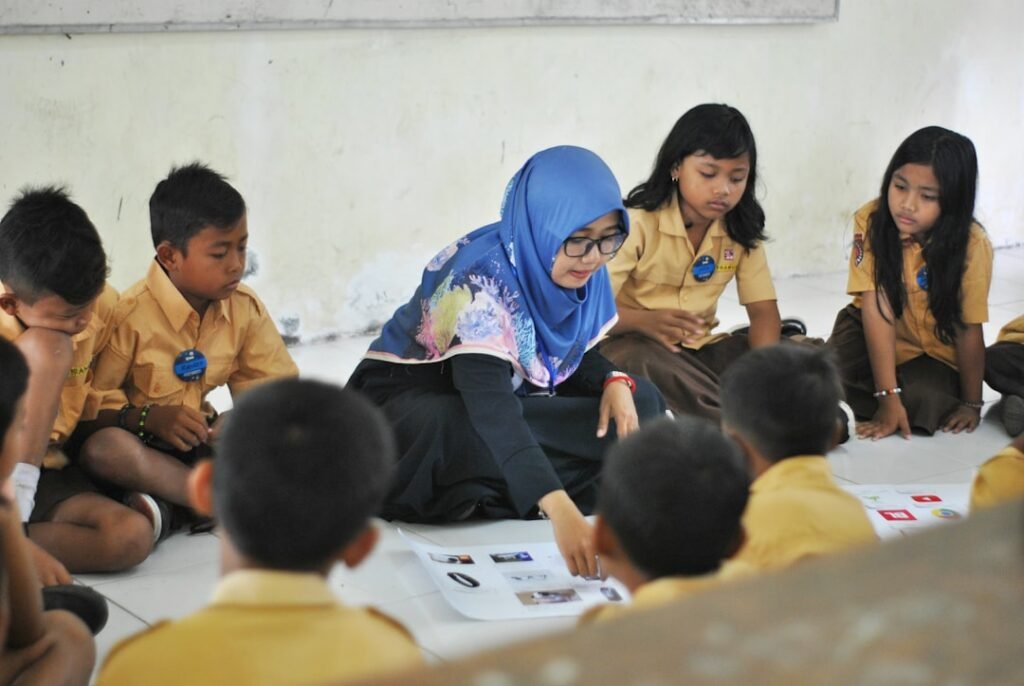Now Reading: Top 10 Games for Real-World Skills
-
01
Top 10 Games for Real-World Skills
Top 10 Games for Real-World Skills

In today’s fast-paced world, the importance of acquiring real-world skills cannot be overstated. As I navigate through various aspects of life, I often find myself reflecting on how essential it is to develop competencies that extend beyond traditional academic knowledge. Real-world skills games have emerged as a dynamic and engaging way to cultivate these abilities.
These games not only provide entertainment but also serve as powerful tools for personal and professional development. They simulate real-life scenarios, allowing players to practice and refine their skills in a safe environment. The beauty of real-world skills games lies in their versatility.
They can be tailored to address a wide range of competencies, from critical thinking to emotional intelligence. As I explore different types of games, I realize that they can be instrumental in preparing individuals for the complexities of modern life. Whether I am looking to enhance my problem-solving abilities or improve my communication skills, there is likely a game designed to help me achieve those goals.
This article will delve into various categories of real-world skills games, highlighting their significance and the benefits they offer.
Key Takeaways
- Real-world skills games are designed to help players develop practical skills that can be applied in everyday life.
- Critical thinking and problem-solving games challenge players to think critically and come up with creative solutions to complex problems.
- Communication and collaboration games focus on improving players’ ability to work effectively with others and communicate clearly.
- Financial literacy and money management games teach players important skills related to budgeting, saving, and investing.
- Time management and organization games help players improve their ability to prioritize tasks and manage their time effectively.
Critical Thinking and Problem-Solving Games
Critical thinking and problem-solving are foundational skills that I find invaluable in both my personal and professional life. Engaging in games that challenge my ability to analyze situations and devise effective solutions has proven to be an enriching experience. These games often present complex scenarios that require me to think outside the box, weigh options, and make informed decisions.
For instance, puzzle-based games or strategy simulations compel me to assess information critically and develop a systematic approach to overcoming obstacles. One game that stands out in this category is “Portal,” which combines physics-based puzzles with a compelling narrative. As I navigate through various levels, I must use logic and creativity to manipulate my environment and solve intricate challenges.
This not only sharpens my critical thinking skills but also enhances my ability to remain calm under pressure. The satisfaction of arriving at a solution after grappling with a difficult problem is immensely rewarding, reinforcing my confidence in my problem-solving capabilities.
Communication and Collaboration Games

Effective communication and collaboration are essential skills in any setting, whether it be at work or in social situations. I have found that games designed to foster these abilities can significantly enhance my interpersonal skills. These games often require players to work together towards a common goal, emphasizing the importance of clear communication and teamwork.
For example, cooperative board games like “Pandemic” challenge players to strategize collectively while sharing information and resources. Participating in such games has taught me the value of active listening and constructive feedback. As I engage with others, I learn to articulate my thoughts clearly while also being receptive to different perspectives.
The collaborative nature of these games encourages me to build trust with my teammates, which is crucial for effective communication. Ultimately, these experiences have not only improved my ability to convey ideas but have also deepened my understanding of the dynamics involved in successful teamwork.
Financial Literacy and Money Management Games
In an increasingly complex financial landscape, understanding money management is a skill I consider vital for long-term success. Financial literacy games provide an interactive way for me to learn about budgeting, investing, and making informed financial decisions. One game that has particularly resonated with me is “Monopoly,” which simulates real estate investment and teaches valuable lessons about financial strategy and risk assessment.
Through playing these games, I have gained insights into the importance of saving, investing wisely, and understanding the consequences of financial choices. The competitive aspect of these games adds an element of excitement while reinforcing the need for strategic planning. As I navigate through various financial scenarios, I become more adept at managing resources effectively, which ultimately translates into better financial habits in my everyday life.
Time Management and Organization Games
Time management is a skill that I continually strive to improve, especially in our fast-paced world where distractions abound. Games that focus on time management and organization have proven to be beneficial in helping me prioritize tasks and allocate my time efficiently. For instance, simulation games like “The Sims” require players to manage multiple responsibilities simultaneously, from career advancement to personal relationships.
As I immerse myself in these games, I learn how to juggle various commitments while maintaining a sense of balance. The urgency of completing tasks within a set timeframe encourages me to develop strategies for effective organization. By experimenting with different approaches in a game setting, I can identify what works best for me in real life.
Decision Making and Risk Management Games

The ability to make sound decisions while managing risks is crucial in both personal and professional contexts. Engaging in decision-making games has allowed me to explore the intricacies of weighing options and anticipating potential outcomes. Games like “Risk” challenge players to strategize their moves while considering the implications of their choices on overall success.
Through these experiences, I have learned the importance of gathering information before making decisions and evaluating the potential risks involved. The thrill of navigating uncertain situations has enhanced my confidence in my decision-making abilities. Additionally, these games often require me to adapt quickly to changing circumstances, further honing my capacity for strategic thinking under pressure.
Negotiation and Conflict Resolution Games
Negotiation and conflict resolution are skills that I recognize as essential for maintaining healthy relationships in both personal and professional spheres. Games designed around these themes provide a unique opportunity for me to practice navigating disagreements and finding mutually beneficial solutions. Role-playing games often simulate real-life scenarios where negotiation skills are put to the test.
One memorable experience was participating in a negotiation simulation where I had to advocate for my interests while also considering the needs of others involved. This exercise taught me the importance of empathy and active listening during negotiations. By understanding different perspectives, I was able to craft solutions that satisfied all parties involved.
These experiences have not only improved my negotiation skills but have also deepened my appreciation for collaboration in resolving conflicts.
Leadership and Team Management Games
Leadership is a multifaceted skill that requires a blend of vision, communication, and the ability to inspire others. Engaging in leadership-focused games has provided me with valuable insights into effective team management practices. Games like “Civilization” allow players to take on leadership roles while making strategic decisions that impact their virtual societies.
As I navigate through these leadership challenges, I learn how to motivate team members, delegate tasks effectively, and foster a positive team culture. The feedback received from fellow players helps me refine my leadership style and adapt it to different situations. These experiences have reinforced the idea that effective leadership is not just about authority; it’s about empowering others and creating an environment where everyone can thrive.
Creativity and Innovation Games
Creativity is an essential skill that fuels innovation across various fields. Engaging in games that promote creative thinking has allowed me to explore new ideas and approaches without fear of failure. Games like “Minecraft” encourage players to build and create freely, fostering an environment where imagination knows no bounds.
Through these creative endeavors, I have learned the value of experimentation and thinking outside the box. The open-ended nature of such games allows me to explore different possibilities and develop unique solutions to challenges. This freedom has not only enhanced my creative thinking but has also inspired me to apply innovative approaches in other areas of my life.
Empathy and Emotional Intelligence Games
Empathy and emotional intelligence are crucial skills for building meaningful connections with others. Games that focus on these themes provide opportunities for me to step into different perspectives and understand the emotions of others. Role-playing games often require players to navigate complex social dynamics, fostering empathy through immersive storytelling.
One particularly impactful experience was participating in a game where I had to make choices based on the emotional states of various characters. This exercise deepened my understanding of how emotions influence behavior and decision-making. By practicing empathy within a game context, I have become more attuned to the feelings of those around me, enhancing my interpersonal relationships both personally and professionally.
Conclusion and Recommendations for Real-World Skills Games
In conclusion, real-world skills games offer an engaging platform for developing essential competencies that are increasingly relevant in today’s world. From critical thinking and problem-solving to empathy and emotional intelligence, these games provide opportunities for growth in various areas of life. As I reflect on my own experiences with these games, I am convinced of their value as tools for personal development.
I recommend exploring a diverse range of real-world skills games tailored to individual interests and goals. Whether it’s through board games, video games, or online simulations, there is something available for everyone looking to enhance their skill set. By actively engaging with these games, we can cultivate the abilities necessary for success in our personal lives and professional endeavors while enjoying the process along the way.
If you’re interested in exploring the lighter side of gaming, you might enjoy reading about some of the funniest glitches and bugs in video games.

















